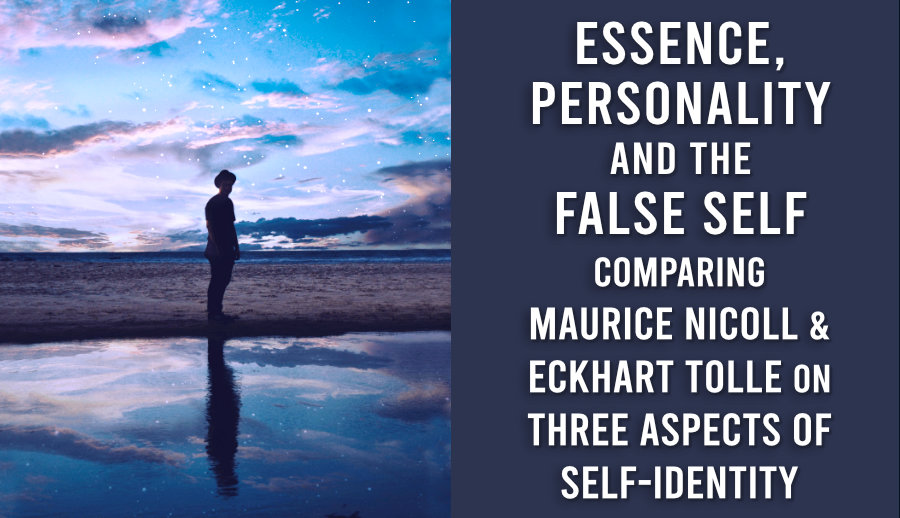What do we mean when we say “I”? Authors Maurice Nicoll and Eckhart Tolle describe three distinct aspects that shape our core sense of identity—and the answer. I explore how …
Eckhart Tolle
-
Comparative analysisComparative essaysEckhart TolleFourth WayGurdjieffMaurice NicollMaurice Nicoll & Eckhart Tolle comparedMindfulnessSelf-observation
Shifting perspective on life: comparing Maurice Nicoll and Eckhart Tolle on self-observation (pt. 3)
by Jack Dawesby Jack DawesSelf-observation allows us to take responsibility for our inner state, whatever life’s external conditions, Maurice Nicoll and Eckhart Tolle convey. We can see and transform inner reactions as they happen, …
-
Barry LongEckhart TolleFourth WayMaurice NicollUpdates/News
Compare similar author quotes in slideshow galleries
by Jack Dawesby Jack DawesAll pictorial comparisons of similar author quotes, displayed in my various articles, have been brought together in a slideshow gallery. Most compare the words of Maurice Nicoll and Eckhart Tolle; …
-
Carl JungComparative analysisComparative essaysEckhart TolleFourth WayGurdjieffMaurice NicollMaurice Nicoll & Eckhart Tolle comparedMindfulnessSelf-observation
The light of consciousness: comparing Maurice Nicoll and Eckhart Tolle on self-observation Pt. 2
by Jack Dawesby Jack DawesMaurice Nicoll vividly described how self-observation casts “the light of consciousness” inwards—illuminating “the darkness of unconsciousness” and transforming it. In doing, he fused Jungian ideas with Fourth Way methodology. I …
-
Comparative analysisComparative essaysEckhart TolleFourth WayGurdjieffMaurice NicollMaurice Nicoll & Eckhart Tolle comparedMindfulnessSelf-observation
Being the observer: comparing Eckhart Tolle and Maurice Nicoll on self-observation (pt. 1)
by Jack Dawesby Jack DawesSelf-observation is integral to inner-transformation, Maurice Nicoll and Eckhart Tolle affirm. We must impartially observe the unconscious stream of thoughts, emotions and reactions occurring in us, they say, and cease …
-
Comparative analysisComparative essaysEckhart TolleGurdjieffMaurice NicollMaurice Nicoll & Eckhart Tolle comparedMindfulnessOuspenskySelf-observation
The quiet rise of self-observation: is this today’s most popular spiritual practice you haven’t heard of?
by Jack Dawesby Jack DawesBestselling author Eckhart Tolle is ranked among the world’s most spiritually influential living people. Self-observation is central to his self-help message. Yet the way he conveys this present-moment practice owes …
-
Barry LongComparative analysisComparative essaysEckhart TolleEckhart Tolle & Barry Long comparedFourth WayGurdjieffMaurice NicollMaurice Nicoll & Eckhart Tolle compared
Eckhart Tolle’s “pain-body”: a deep dive into its hidden history
by Jack Dawesby Jack DawesEckhart Tolle’s signature “pain-body” concept closely resembles ideas taught earlier by Maurice Nicoll and Australian mystic Barry Long.
-
Eckhart TolleFourth WayGurdjieffMaurice NicollMindfulnessOuspensky
The creation of now: how Fourth Way authors sparked a revolution of the present moment
by Jack Dawesby Jack DawesMindfulness or present-moment awareness is popular today. Many modern sources emphasise having awareness in life’s everyday activities, not just meditation sessions. This trend owes something to the early 20th century …
